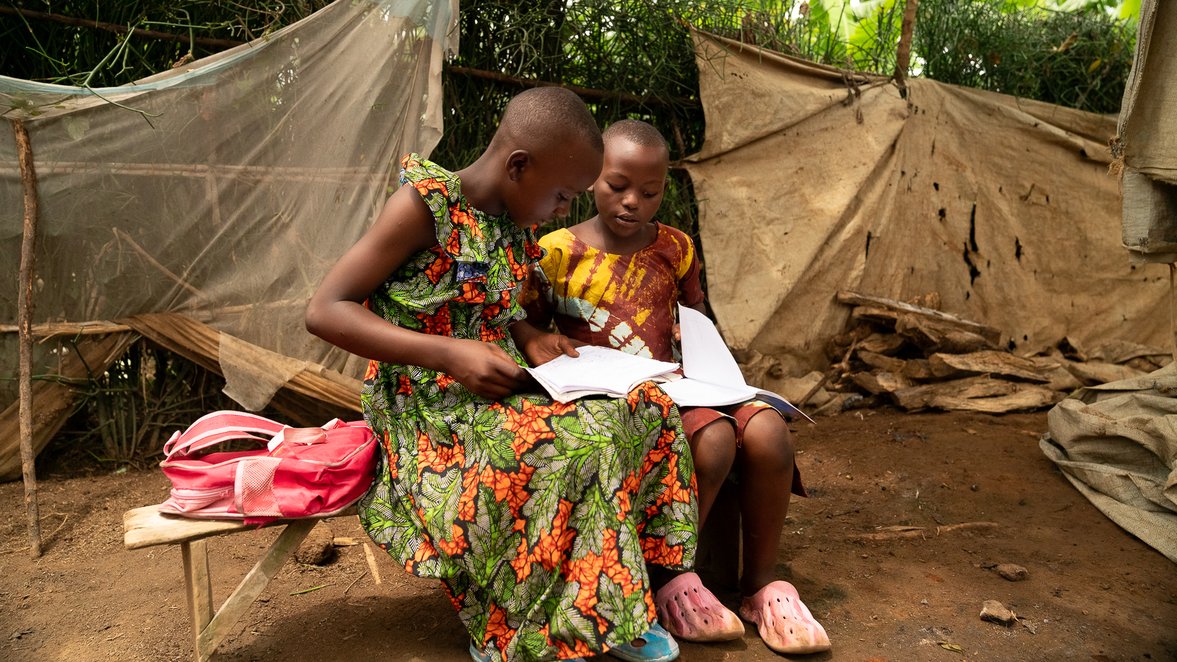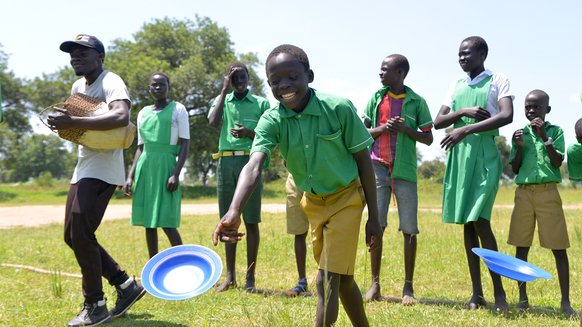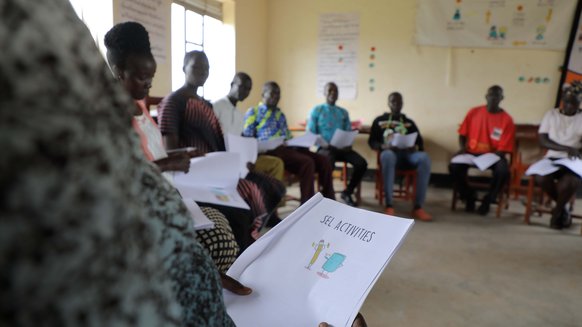War Child Alliance Raises Alarm as Uganda’s Refugee Settlements Buckle in Wake of Aid Cuts
Aug. 12, 2025
Kampala

In Nakivale, one of Uganda’s largest settlements, community gardens lie abandoned, youth programmes have stalled, and desperation is spreading.
“What we are witnessing in Nakivale is extremely concerning. There is heightened tension and growing distress among residents. A sense of hopelessness and frustration is spreading as the gap between needs and available support continues to widen. Long-term residents, single mothers, child-headed households, and those with chronic illness are particularly affected as limited funding means current humanitarian interventions mainly prioritise new arrivals. Reports of depression and petty theft are increasing, and many parents are deeply concerned about food security, school fees, and day-to-day survival,” says Renate Kavira, Acting Executive Director of TUMAINI, a refugee-led organisation in Nakivale.
War Child Alliance staff and other agencies are witnessing growing tension and distress across Nakivale and other refugee settlements. Parents are skipping meals to keep their children fed. Reports of petty theft and depression are rising. In one of the most distressing incidents reported by local sources, a refugee woman was allegedly beaten to death in a food-related dispute.
Education on the Brink
Uganda, which hosts more than 1.8 million refugees, including more than 143,000 new arrivals just this year, has long been recognised for its inclusive approach. But that progress is now at serious risk. In the education sector, hundreds of teachers have been let go due to budget cuts. According to UNHCR, pupil-to-teacher ratios have jumped from 77:1 to as high as 207:1 – well beyond Uganda’s recommended 53:1.
While government schools host some learners, many refugee children attend community or private schools that are now on the verge of closure. Vital programmes such as scholarships, remedial classes, and school materials have also been deprioritised. If funding is not restored, education-focused organisations like War Child Alliance are concerned that thousands of children could be forced out of school entirely.
“We don’t believe in lost generations – education is so critical to ensuring that doesn’t happen. With the intense cuts to funding of education programmes for refugee and host community children and young people, their futures are at risk. War Child Alliance is doing everything we can to ensure that our programmes including Can’t Wait to Learn continue, but we can’t do it alone. There is a very real possibility that we would struggle to continue if funding keeps shrinking,” Parwez Anis, War Child Alliance Country Director for Uganda.
Without urgent action and funding, the refugee response in Uganda may collapse – in spite of the Ugandan government's progressive ‘open-door’ refugee policy. And it is the most vulnerable who pay the price. Refugee communities in Uganda are in urgent need of emergency food assistance for the most vulnerable, increased mental health and psychosocial support to address rising distress, investment in livelihood opportunities to reduce dependency and restore dignity, and a restoration of education funding to prevent school closures and dropouts.
As global attention shifts elsewhere, Uganda’s refugee settlements risk becoming a forgotten emergency, while at the same time the country is receiving ever-increasing numbers from conflicts escalating in neighboring countries. Local groups like TUMAINI alongside War Child Alliance continue to step up, but we cannot do it alone.

